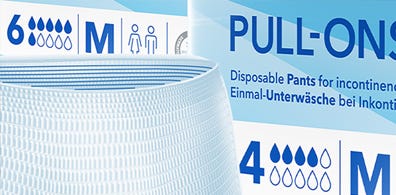How To Stop Urine Leakage When Coughing



Urine leakage when coughing is a surprisingly common problem that affects many women across the UK. In fact, according to a survey of two thousand women, one in five women are said to experience urinary incontinence.
In this blog post, we take a detailed look at the main underlying causes of urine leakage when coughing and highlight some of the most effective things you can do to stop it.
What causes urine leakage when coughing?
If you leak urine when you cough, this will most likely be caused by stress incontinence – a form of incontinence where you leak urine during physical exertion.
When you cough, this puts pressure on your abdomen which pushes down on your bladder. If your pelvic floor muscles aren’t strong enough, urine can then leak out.
Another reason why urine leakages can happen while coughing is due to your pelvic floor muscles momentarily relaxing when you cough, allowing urine to leak out.
However, it’s not just coughing that can bring this on. Urine leakage can also occur when you laugh, sneeze, jump, lift a heavy object or exercise.
Some of these main risk factors include:
● Pregnancy
● Childbirth (especially vaginal births)
● Pelvic surgery (like a hysterectomy)
● Uterine prolapse
● Diabetes (associated problems like nerve damage, obesity and bladder infections can cause urinary incontinence)
● Obesity
● Chronic coughing
All of these risk factors can weaken your pelvic floor muscles, reduce your ability to hold in your urine when exerting yourself and, ultimately, increase your likelihood of experiencing urine leakages when you cough.



What can you do to prevent urine leakage when coughing?
Although dealing with urine leakages when coughing can be challenging, there are several things you can do to improve symptoms of stress incontinence. Let’s take a look at some of the best ways to manage urine leakage when coughing and regain your confidence.
1. Exercise
Exercises like yoga and Pilates may help to reduce stress incontinence. Certain poses and movements associated with both of these types of exercise may help improve muscle strength in both your lower body and your pelvic floor, helping minimise your risk of leaks.
2. Pelvic floor exercises
Pelvic floor exercises are an important type of exercise that everyone (including men) should do – especially when trying to prevent urine leakage when coughing. These exercises help to strengthen the muscles in your urinary system, giving you more control over your bladder.
To locate your pelvic floor muscles, sit or lie down comfortably and squeeze the muscles you would use to stop urine or wind coming out. Hold the muscles tight for a few seconds before releasing.
Repeat these exercises numerous times throughout the day and, over time, you should see an improvement in how often you leak urine when you cough.
You may wish to speak with your doctor or continence specialist before starting pelvic floor exercises to ensure you’re doing them correctly. Performing pelvic floor exercises incorrectly can lead to further problems.
3. Pay attention to what you drink
Although coffee is how many people start their day, drinking it can increase the possibility of stress incontinence.
Caffeine (found in black and green tea as well as coffee) causes your body to produce more urine and stimulates your bladder. This might make you more likely to leak urine when you cough, so why not try switching to decaffeinated beverages instead? In doing so, this should hopefully reduce your likelihood of experiencing a urine leak.
Alcohol is another drink you need to be careful of. Since alcohol is a diuretic, this means it makes you need to urinate more.
Cutting down on alcohol can be beneficial when trying to minimise your risk of urine leakage when coughing, as it’ll mean you have less urine in your body to accidentally release.
4. Make sure you drink enough water
Some people may feel that they need to cut down on how much water they drink when dealing with stress incontinence. However, this can actually make your condition worse.
Not getting enough water can reduce your bladder’s capacity to hold as much urine. It can also increase your chances of constipation, putting further pressure on your pelvic floor muscles.
As such, try to drink six to eight glasses of water a day and you should start to notice your stress incontinence symptoms start to improve.
5. Stop smoking or vaping
When you smoke or vape, you put yourself at a much higher risk of developing a chronic cough. When this happens, you put extra strain on your pelvic floor muscles, which can potentially then lead to stress incontinence.
So, by trying to give up on smoking or vaping, you should soon see an improvement in your cough and, therefore, the likelihood of urine leakage.
6. Losing weight
If you are overweight or obese, the excess weight can put an increased amount of pressure on your abdominal and pelvic organs. This can lead to a weakened pelvic floor and urine leakage when you cough.
However, losing weight healthily through a well-balanced diet and exercise can make a difference.
By alleviating the excess pressure on your abdomen and pelvis and strengthening your pelvic floor through exercise, you should be able to minimise urine leakage when you cough.
7. Alleviate constipation
Being constipated regularly puts a big strain on your pelvic floor muscles, causing them to weaken.
Adding more fibre to your diet can help soften your stools. In doing so, this should mean you don’t have to strain as much when using the bathroom, helping strengthen your pelvic floor muscles.
Some of the best high-fibre foods to prioritise include:
● Oats, wholegrain bread, cereal and pasta
● Potatoes with their skins on
● Pulses like beans, lentils and chickpeas
● Fruits and vegetables
8. Disposable incontinence products
Treating urine leakage can take time so you will need to try and find ways to manage it until that point. Fortunately, incontinence products are available to help provide you with the comfort and security you need whenever you experience leakage when coughing. Nowadays, there is a wide range of incontinence products to choose from. From pads to pants, with a little bit of research, you can quickly find a product absorbent enough for your needs.



Supporting urine leakage with Attends
Experiencing incontinence when you cough is common but can be controlled. There are plenty of things you can do to minimise your symptoms, especially when they’re caused by stress incontinence.
However, it’s important to speak with your doctor if your symptoms start to become worse, you find that lifestyle changes don’t help or you need advice on which management options you should prioritise.
At Attends, for example, we offer a vast range of incontinence products that can help you protect your clothing and dignity when you accidentally leak urine while coughing. Incorporating incontinence products into your life when trying to find additional comfort and support can help when living with stress incontinence.
Sources

Sexual Health & Incontinence

Which Medications Can Cause Incontinence?

Incontinence in Young Women: Key Causes

Nocturia & Nocturnal Enuresis (Adult Bedwetting)

How To Stop Urine Leakage When Coughing



